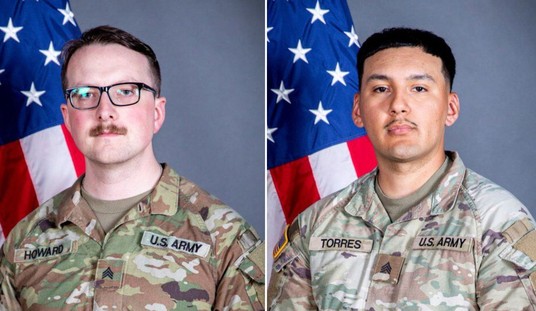Just before boarding Marine One on Friday, President Barack Obama took the opportunity to speak to the press about the escalating crisis in Iraq. With ISIS militants overrunning key Iraqi positions, sacking cities, and forcing thousands of U.S.-trained Iraqi troops into surrender, Baghdad has publicly asked Washington for immediate kinetic military assistance.
In response to this crisis, the president assured the nation that he has asked his staff to prepare a set of options for him in order to address this pressing and immediate military threat. To that end, as reports indicate, the United States has redirected the aircraft carrier George H. W. Bush to the Persian Gulf and has been conducting surveillance flights over Iraq to identify potential targets.
However, as Obama said on Friday, his apparent commitment to the political goals which propelled him into office – namely, a commitment to American retrenchment and especially the extrication of U.S. forces from the Iraqi theater – trumps the immediate security needs of a region in crisis.
“This is not solely or even primarily a military challenge,” Obama told reporters. He placed the burden of the present crisis on the Iraqi government, which the president said has fostered an atmosphere of sectarian mistrust by excluding Sunni groups from broader representation in the central government.
Obama insisted that internal political reforms must be forthcoming. “In the absence of this type of political effort, short-term military action, including any assistance we might provide, won’t succeed,” he insisted.
“Iraq’s neighbors also have a responsibility to support this process,” Obama said, “The United States will do our part, but understand that ultimately it is up to the Iraqis, as a sovereign nation, to solve their problems.”
Asked if the Syrian civil war is “spilling over the Iraq border,” Obama insisted that he believed that this had been “happening for some time.” Indeed. In fact, the threat of the Syrian conflict spilling over its borders was among the reasons why the United States needed to act to contain that conflict. At least, that is what the president said in his prime time address to the nation in September, 2013.
Obama added that Iraq, “which was initially resistant to some of our offers of help,” has now been scared into cooperating with the United States. As the New York Times reported, however, the Iraqi government has been asking for airstrikes since at least March. The Daily Beast reported that Iraqi officials were interested in applying U.S. airpower to the worsening situation near the Syrian border since November of last year. Instead, they received millions of dollars in American weaponry, much of which is now falling into ISIS hands as Iraqi soldiers retreat.
Again, Obama implicitly confessed to this tactical failure:
“The United States has poured a lot of money into these Iraqi security forces,” Obama insisted. “And we devoted a lot of training to Iraqi security forces.”
“The fact that they are not willing to stand and fight and defend their post against admittedly hardened terrorists, but not terrorists who are overwhelming in numbers, indicates that there’s a problem with morale, there’s a problem in terms of commitment, and ultimately that’s rooted in the problems that have plagued the country for a very long time,” he added.
Finally, Obama concluded by saying that, while the threat in Iraq is immediate, growing by the hour, and fast-moving, America’s response to it will be none of those things. “People should not anticipate that this is something that is going to happen overnight,” Obama said. “The United States is not simply going to involve itself in a military action in the absence of a political plan by the Iraqis that gives us some assurance that they’re prepared to work together.”
The collapse of the American strategy of providing assistance from the sidelines having become apparent, Obama remains inexplicably unable to commit to a change of course.
While political reforms inside Iraq are critical, the president’s priorities are misplaced. There is no question internal reforms in Iraq are necessary. The pressing threat to international security posed by the possible collapse of the Iraqi state, however, is not setting the conditions conducive to a prolonged reconciliation process. That comes later. The first step should be ensuring stability.
The American people do not want to reengage in Iraq, and many wish that the United States had never toppled the Saddam Hussein regime in the first place. But no one can rewrite history. The reality is that America has a responsibility for Iraq’s security today, and the president is shirking that responsibility.
The threat posed by Syrian instability is clear – it has engulfed Iraq. The threat posed by Iraqi instability is clear – it is now drawing in Iran. A regional war is now a very real possibility. The United States can engage in that theater on its terms now, or wait and engage in it on less favorable terms down the road. But, for the globe’s only superpower, there is no avoiding engagement.
The president, meanwhile, must come to terms with the fact that his legacy achievement, the withdrawal of American forces from Iraq, is coming apart. But he better not take long. The world is on fire.








Join the conversation as a VIP Member